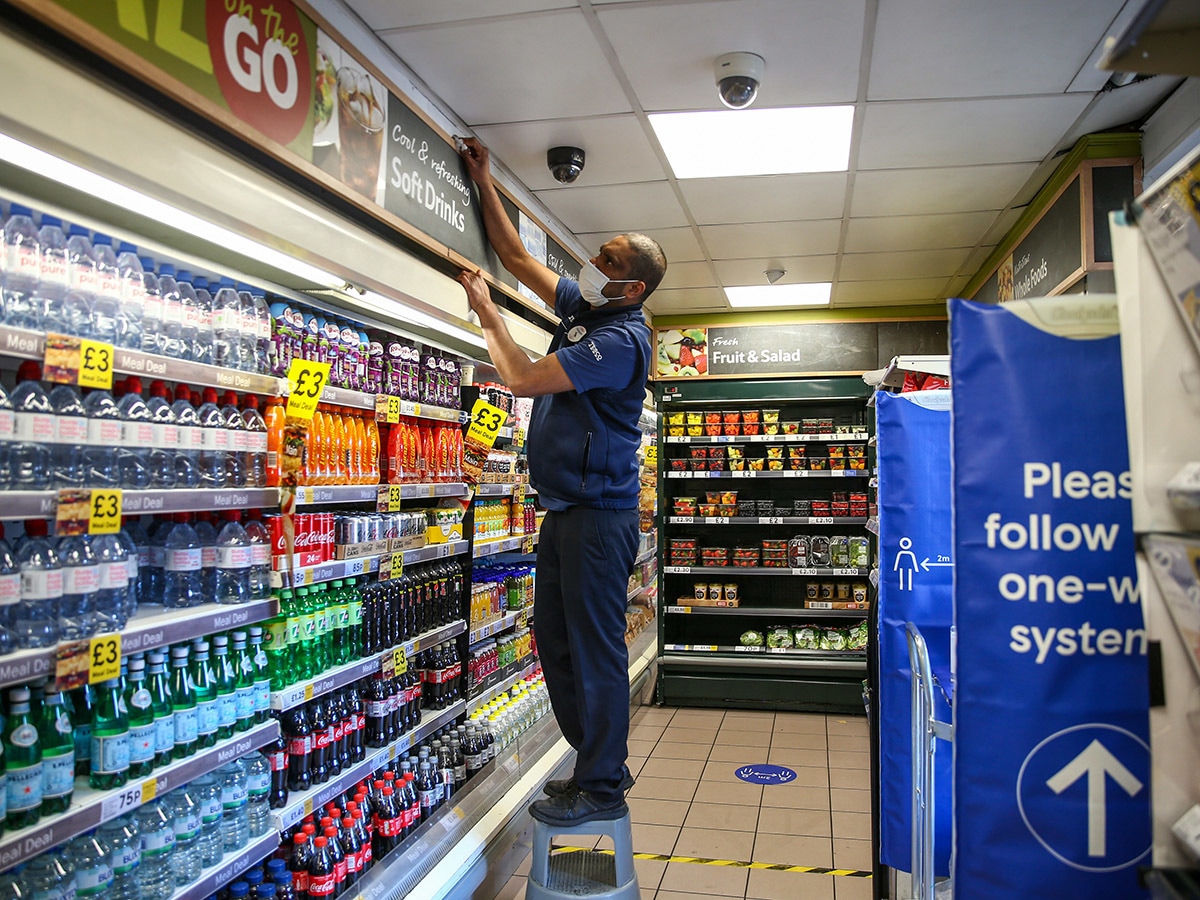
The Tesco share price is down 30% year to date, with its position as the UK’s leading food retailer by market share doing little to protect it from the cost-of-living crisis.
Although Tesco last year generated adjusted operating profits of £2.83bn, up 58.9% year-on-year at constant rates, Tesco shares have fallen to a five-year low, while Tesco stock has received a downgrade by broker Goldman Sachs.
Potential profit dip weighs on Tesco share price
When the Q1 results came out in June, Tesco warned that high inflation could see profits this fiscal year dip to between £2.4bn and £2.6bn. Even this range seems somewhat optimistic. The fall in Tesco’s share price suggests that investors might agree.
The Tesco share price is trading marginally above is recent 52-week low level at 199.78p, which it fell to on 29 September. The heady heights of January’s 52-week high of 304.10p certainly seems a long way off, with the share price now down 32% since then.
Market share retained
Although some shoppers may be turning to cheaper alternatives, such as Lidl and Aldi, Tesco retained a 26.9% share of the UK grocery market in the 12 weeks to 4 September, according to data from researcher Kantar. That put it way ahead of second-placed Sainsbury’s on 14.6%.
Tesco’s determination to compete with Aldi and Lidl on price shows little sign of diminishing. Although this will continue to put further downward pressure on margins, Tesco has enough in its locker to keep up the pressure. The company extended its Aldi price match scheme to 650 products in April, and continues to run various discounts and promotions for holders of its Clubcard customer loyalty scheme.
First quarter sales drop
In Q1, covering the three months to the end of May, UK like-for-like sales fell 1.5%, a bigger drop than was forecast, while like-for-like sales in Ireland fell 2.4%. The retailer said that customer behaviour seemed to be changing, with shoppers favouring lower-margin, own-brand items over branded goods. Booker, Tesco’s wholesale subsidiary, stood out as sales increased 19.4% year-on-year to £2.1bn, partly thanks to the loosening of lockdown restrictions.
Higher costs put squeeze on margins
Higher staffing and energy costs are likely to put further pressure on margins at the half-year stage. In July, Tesco raised wages for supermarket staff from £9.55 to £10.10 an hour. The chain is also offering a range of free food products and toiletries to staff, and is giving Clubcard holders discounts of up to 50% on own-brand products.
Meanwhile, rising fuel prices are adding to delivery and logistics costs. Tesco is taking measures to mitigate some of these rising costs, with the retailer carrying out a three-year cost saving programme that aims to deliver £1bn in efficiency savings.
Analysts forecast potential share price gain
According to the 11 analysts polled by the Financial Times offering 12-month price targets, Tesco has a median target of 290.00p, with a high estimate of 330.00p, and a low estimate of 240.00p. The median estimate suggest a potential upside of 40.23% compared with last week’s closing price at 206.80p. Analysts’ consensus recommendation is to ‘hold’ Tesco stock, with seven hold recommendations, along with three ‘buy’, six ‘outperform’, and one ‘underperform’ rating.
Disclaimer: CMC Markets is an execution-only service provider. The material (whether or not it states any opinions) is for general information purposes only, and does not take into account your personal circumstances or objectives. Nothing in this material is (or should be considered to be) financial, investment or other advice on which reliance should be placed. No opinion given in the material constitutes a recommendation by CMC Markets or the author that any particular investment, security, transaction or investment strategy is suitable for any specific person. The material has not been prepared in accordance with legal requirements designed to promote the independence of investment research. Although we are not specifically prevented from dealing before providing this material, we do not seek to take advantage of the material prior to its dissemination.






















